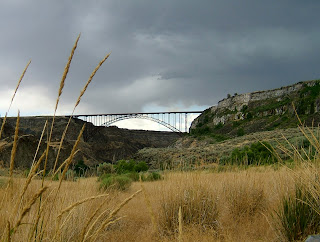Just saw the animated movie Tangled for the first time on Christmas Day (a gift to my six-year old niece). Sorry, but I am not a fan. I know, I know - curmudgeon. It’s not that it wasn’t funny - it was! It was even laugh-out-loud funny in many places. All the “girls” watched it together, while all the guys watched Captain America in the other room. Quite the gender-specific activity.
The problem with me (perhaps I should say, one of the problems) is that I tend to be analytical about everything. My friend Kris, who writes wonderful and funny stories about adventures with her children, said on her blog that I have “enough meaningful thoughts for ten people.” It was meant as a compliment. Of course (being analytical), I couldn’t help wondering if it makes me sound like a geek’s geek. But really, Kris, thanks - you are very kind!
Anyway, my analytical brain kicked in while watching Tangled. The plot hinges on this golden drop of sunlight that falls to earth and becomes a magical flower. Right away I’m thinking, why only one drop of sunlight? What made this one so special? What conditions created it? Why did it become a flower and not a special stone?
And then, the “old woman” finds it and discovers it will make her young and beautiful again - provided she sings it a special song. Well, I’m sorry, but how did she figure that out? How did she know it was a song? And if you realized that a flower would give you magical powers if you sang it a special song, how long might it take you to find the right words, not to mention the melody? And that was only the beginning. Primarily, however, I couldn’t find the point of the movie, and when it was all over, I had nothing to take with me, although I had been entertained. It was just over. (Having a lot of deep and meaningful thoughts means I like movies that provide material for those thoughts. It's a problem.)
 |
| Haute Sphere - Nativity by Sylvain Dubuisson |
Maybe there is a little deeper meaning in that story (unintentional on the part of the writers) that I can take with me after all. What if the Incarnation was like a drop - the only drop ever - of sunlight, of God-light? The golden halo of the Holy Spirit, nestled on the earth in a bed of straw. The child, born of this sun-drop, through Mary, with powers unimaginable: the power to restore, to save lives. And there’s even a special song:
Holy, Holy, Holy, Lord God of Hosts!
Heaven and earth are full of your glory.
Hosanna in the Highest!
Blessed is he who comes in the Name of the Lord.
Hosanna in the Highest!
Well, how about that. Guess I got something out of Tangled after all.













